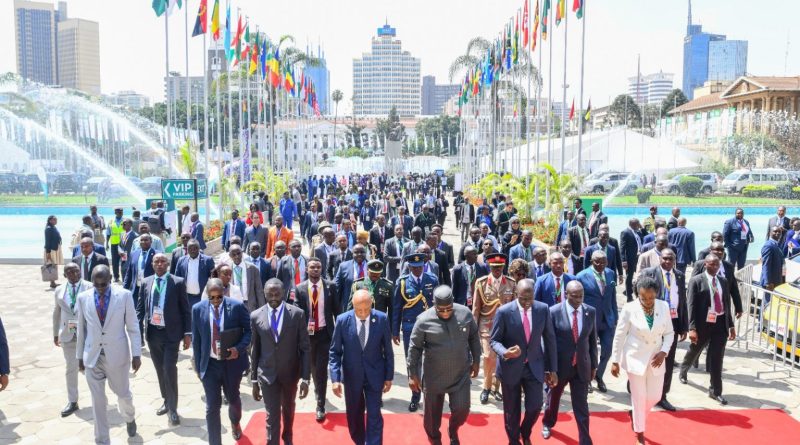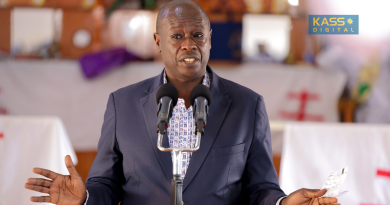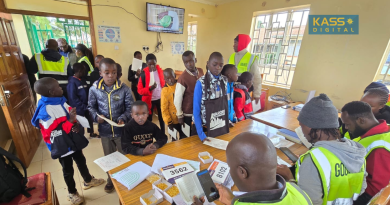Africa Climate Summit Attendees Unveil Bold Vision for Climate Justice and Sustainable Agriculture
By Chemtai Kirui | phillykirui@gmail.com
Nairobi, September 4, 2023 — The inaugural Africa Climate Summit, convened by President Dr. William Samoe Ruto and championed by the African Union, resounded with a clarion call for climate justice. At the core of this historic event was a steadfast focus on sustainable agriculture and the urgent need to address climate challenges within food systems.
Leaders from across the continent gathered in Nairobi for this landmark three-day event, united in their determination to strengthen Africa’s global influence and secure substantial financing and support for a crisis to which the continent contributes the least.
President Ruto’s Vision
President Ruto, setting the tone for the forthcoming summit, expected to be attended by more than 30,000 delegates and over 25 heads of state and government, said that the gathering serves as a platform to inform, frame, and influence commitments, with the ultimate goal of crafting the Nairobi Declaration.
In his address, President Ruto underscored not only the pressing importance of the green transition, aligning with the global trend towards a green economy but also emphasized that “Africa possesses the resources necessary to guide the globe toward a green growth and climate finance solutions.”
The Imperative of Resilient Farming Practices
The pivotal theme of environmentally resilient farming practices emerged prominently during the summit’s opening ceremony. Roselinda Soipan Tuya, Cabinet Secretary for Environment, Climate Change, and Forestry, highlighted Africa’s role in ecological responsibility and the critical importance of agriculture in addressing climate change.

Tuya said that it is time for Africa to harness its abundant resources for a low-carbon economy while viewing climate change through the lens of climate justice.
“Without adequate measures, climate change will crush us all,” she declared.
Challenges and Urgent Actions
Recent news from the United Nations paints a grim picture: “After three years of drought, more than 27 million people face acute food insecurity in Ethiopia, Somalia, Kenya, and Uganda. This has resulted in the deaths of 9.5 million livestock. The situation will worsen as temperatures exceed 1.5°C. To keep 1.5°C within reach, addressing emissions from food systems and decarbonization is imperative.”
President Ruto emphasized the shared responsibility to protect the Earth.
“We cannot afford discussions about who caused the crisis; instead, we must unlock Africa’s natural resources, benefiting not only the continent but the entire world,” he said.
Africa’s Transition to Equal Partners
According to Josefa Sacko, Commissioner for Agriculture, Rural Development, Blue Economy and Sustainable Environment at the African Union Commission — Africa has the potential to transition from being a recipient of aid to becoming an equal partner in the fight against climate change.
“The continent possesses the capability to mobilize resources,” she emphasized.
Sacko highlighted the strength of unity among African nations and the pivotal role of youth as drivers of sustainability.
Investing in Transformative Agriculture
On investing in farmers for a transformative food system,Victoria Kwakwa, representing the World Bank, delivered a stark message: “About one third of greenhouse gas emissions stem from agriculture.”
She as well called for collaborative efforts to bring about a radical shift in the food system and highlighted the World Bank’s active investments in food system reform, recognizing the need for financial institution changes to better serve the agriculture sector.
Indigenous Wisdom and Climate Resilience
The issue of climate finance and justice remained a constant call at the summit. Ann Samaji, representing indigenous groups from across Africa, emphasized the importance of recognizing traditional knowledge as a means to build climate resilience.
“We need the world to recognize us and the work we do to preserve our Traditional knowledge, which allows us to conserve the environment,” she said.
Ann called for the creation of a climate resilience fund for indigenous groups and stressed the need for their voices to be at the center of the climate talks.
Agroecology’s Role in Climate Justice
Speaking on behalf of the Small-Scale Farmers Forum, Hakim Baleraine, a smallholder farmer from Uganda and chairperson of the Alliance for Food Sovereignty in Africa, emphasized the importance of agroecology in addressing climate change.
“Agroecology is resilient and environmentally friendly. It protects our ecosystems, preserves biodiversity, and increases soil health.” He stated, adding that, “The abuse of land and the misuse of agrochemicals have contributed to climate change —and agroecology offers a sustainable alternative.”

Hakim also highlighted the economic potential of agroecology, saying, “Organic products, a part of agroecology, fetch higher prices in the market. This demonstrates that agroecological approaches can provide income and support the livelihoods of many families.”
Sentiments echoed by Nancy Mujimba Walimbwa, the National coordinator of the Eastern and Southern Africa Small-Scale Farmers Forum (ESAFF-Uganda). She underlined the significance of agroecology in achieving both sustainable agriculture and climate justice.
Mujimba emphasized that agroecology, a community-centered approach to farming, not only promotes environmental sustainability but also respects cultural and social aspects.
She raised concerns about climate financing, noting that only a small fraction of funds are directed toward adaptation efforts.

“Agroecology is a celebrated approach,” Mujimba emphasized during an interview with Kass Media. “It is a people-centered solution that achieves climate justice. It preserves indigenous farming practices, respects cultural values, and ensures safe, poison-free food.”
She stressed the need for increased support for small-scale farmers in producing safe and sustainable food— underscoring the importance of ensuring that climate finance reaches grassroots-level farmers.
The Role of Agroecology in Transforming Food Systems
Agroecology, which is an integrated agriculture system, is celebrated by conservationists as a holistic and sustainable approach that considers ecological principles, biodiversity, and community well-being. It is often discussed in the context of transforming food systems.
A research done by The Food and Agriculture Organization of the United Nations (FAO) reveals that higher levels of carbon dioxide can adversely affect crop yields— hence underscoring the need to reintegrate agroecology into our farming systems.
A Call for Climate Justice and Support
However, there’s palpable frustration by the African Civil society about Africa being urged to adopt cleaner development pathways when many developed nations, responsible for the bulk of emissions, have not fulfilled their pledges of support.
Dr. Mithika Mwenda, Executive Director of the Pan African Climate Justice Alliance, highlighted the glaring disparity between annual climate assistance to the continent and its actual needs. He noted that in 2020, over $83 billion was allocated to poorer countries for climate financing, still falling short of the promised $100 billion annual goal set by the rich countries.

Speaking on behalf of Africa’s civil society, Mwenda emphasized the historical power struggle in climate discussions between the global north and south. He called for a profound dialogue on climate funding from developed nations to support adaptation and mitigation measures.
“This summit must serve as a platform to ensure the fulfillment of promises, rather than allowing developed nations to evade their responsibilities,” he insisted.
A Hopeful Projection
The Africa Climate Summit is scheduled to conclude on Wednesday, with the signing of the Nairobi Declaration. Meanwhile, the Africa Climate Week, held in parallel, will continue until Friday, September 8th, 2023.
As Africa takes a proactive stance in tackling the global climate crisis, summit delegates emphasize that their vision embraces climate justice and sustainable agriculture. This vision offers hope for a more equitable and environmentally responsible future.




